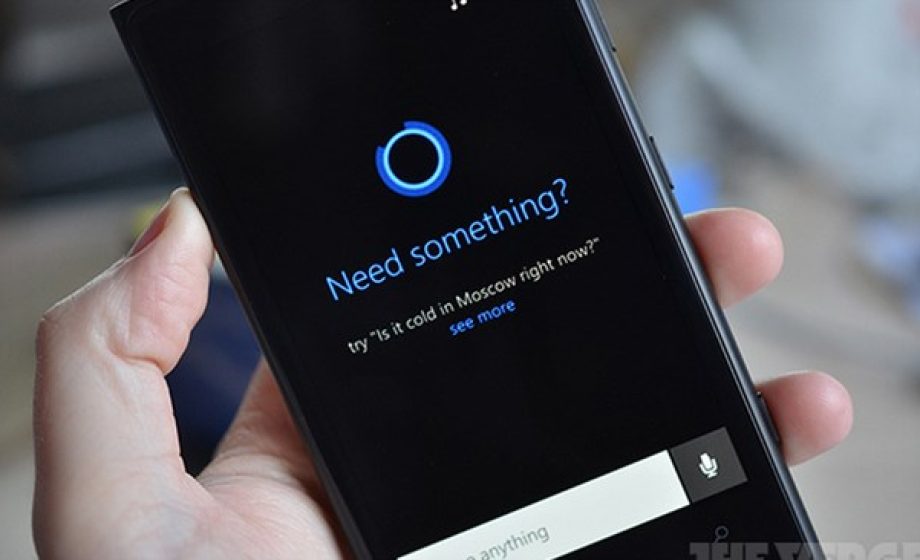
Lengow wrapped-up another highly successful edition of its eCommerce Day last week. While the event focused squarely on the practical, giving eCommerce vendors tip and tools to improve their business, they also offered some insights into new innovations affecting the sector via a keynote by Frank Fuchs, Microsoft’s top European OSS Evangelist and well-known search guru. His keynote was particularly timely as just a day before, Microsoft announced the launch of their answer to Siri and Google Now, ‘Cortana’, debuting as a part of Windows Phone 8.1.
 I had the fortunate opportunity to chat with Fuchs following his talk and get his perspective on how and why Cortana is heads and shoulders above Siri and his insights on the future of search. According to Fuchs, one of the main drivers behind Cortana is Microsoft’s goal of making search more human. This is a philosophy that they, first, applied to Bing and has underpinned decisions like making search more visual. As the goal of an ‘intelligent personal assistant’ is ultimately to get its user better real-time information, answers to their questions, and better advice and recommendations, it really can be considered a smarter and more sophisticated approach to search. Cortana is constantly working to understand users better – studying their habits, language, and interests continuously to deliver more value. So a great example Fuchs gave of this was how Cortana responded to his own flight being affected by Lufthansa during last week’s site. Cortana scanned his calendar, identified he was booked on a Lufthansa flight and sent Fuchs an alert that there was a strike underway and suggested he move to rebook his flight. Cortana can also scan and read users’ emails to figure out the dates that are most important to them or, during their morning commute, determine if they’re going to be late and suggest alternative routes to get to work quicker.
I had the fortunate opportunity to chat with Fuchs following his talk and get his perspective on how and why Cortana is heads and shoulders above Siri and his insights on the future of search. According to Fuchs, one of the main drivers behind Cortana is Microsoft’s goal of making search more human. This is a philosophy that they, first, applied to Bing and has underpinned decisions like making search more visual. As the goal of an ‘intelligent personal assistant’ is ultimately to get its user better real-time information, answers to their questions, and better advice and recommendations, it really can be considered a smarter and more sophisticated approach to search. Cortana is constantly working to understand users better – studying their habits, language, and interests continuously to deliver more value. So a great example Fuchs gave of this was how Cortana responded to his own flight being affected by Lufthansa during last week’s site. Cortana scanned his calendar, identified he was booked on a Lufthansa flight and sent Fuchs an alert that there was a strike underway and suggested he move to rebook his flight. Cortana can also scan and read users’ emails to figure out the dates that are most important to them or, during their morning commute, determine if they’re going to be late and suggest alternative routes to get to work quicker.

Offering ‘smart features’ such as these are, however, only the beginning for Microsoft. Eventually they want to take the human aspect much further by incorporating the ability to read users’ emotions, enabling Cortana’s interactions and suggestions to be even more helpful for users. Fuchs reckons that the way most people find what their looking for via traditional search is in many ways like ‘a doctor diagnosing someone via text.’ In other words, there’s a great deal of context, history and human emotion lost in the way we approach search today. Microsoft is looking to rectify this problem and expecting that the launch of Cortana will be big step forward in realizing that vision.
For Fuchs himself, seeing this vision become a reality has been a long-time coming as he wrote about the inevitable dawning of the age of sense-powered search back in 2012. One thing he also stressed during our discussion was the importance of voice technology in driving Cortana’s effectiveness. Understanding languages and voice patterns at the most intricate level was an integral part of Cortana’s development. So, for example, they want Cortana not to only understand different languages and native, local accents, but also to understand ‘non-native’ accents which voice driven applications often struggle with.
Fuchs gave me a little demo of Cortana and it does look promising. While Siri turned out to not be many people’s cup of tea, probably mostly because she wasn’t as accurate or intuitive as users’ would’ve hoped, perhaps Microsoft’s Cortana will change the game and get a much better reception. However, as Microsoft are still a ways behind the competition in mobile, they’ll need to leverage their range of products and services (Xbox, windows, etc) to get as many consumers trying and using Cortana as possible.

